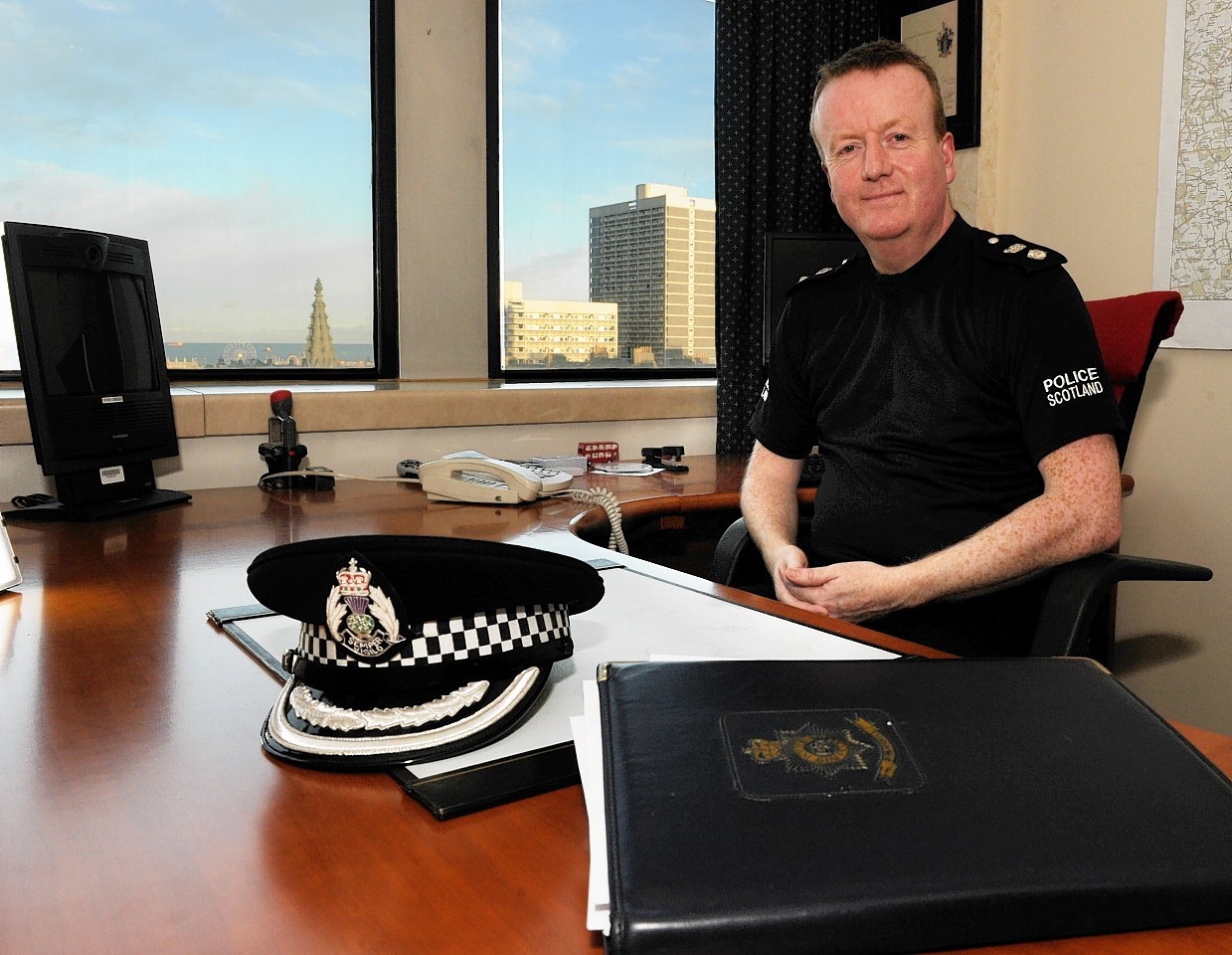When Adrian Watson joined Grampian Police in 1986, he didn’t sign up because of the sociable hours or the easy working life.
“I joined because I wanted to be a bobby on the beat. It’s a vocation,” he said.
His determination and commitment to serving the north-east has led to him to his current post of local commander for the Aberdeen Division.
He bears responsibility for the “biggest beat in Western Europe”, which includes the 210,000 people who live in Aberdeen and the challenging terrain of the North Sea.
After serving Grampian Police for almost three decades, he admits there were anxieties about what the “brave new world” of Police Scotland – as he describes it – would mean for the future of his force.
But it is his like-minded, determined colleagues – people who joined the police, like him, to do the best for their communities – who have pulled the city through its first 18 months of reform.
“There has been a lot of change – of course there has been – but looking back, it was absolutely the right thing to do,” he said.
“There was no way that eight forces could have possibly made it through the financial climate, achieve the savings that needed to be realised and also achieve what was expected of us. I think we all knew that.
“It’s challenging operating in an environment with budgetary challenges, and we’ve got some time to go.
“But it’s often said that success is business as usual, and it feel like business as usual.
“It’s real testament to the ‘can do’ attitude of police. It’s in our psyche – we get things done.”
Despite fears that convictions could be compromised, crime in Aberdeen has in fact fallen (there are statistics to prove it).
And despite concerns that officers would flee the north-east as change got underway, he said retention in one of the most notoriously challenging parts of Scotland for public service recruitment has not been compromised.
In fact, Ch. Supt Watson says his force has worked harder and more effectively than ever before to prove to the public that Police Scotland has not compromised safety.
“There were all sorts of concerns and scare-mongering that local policing would suffer, that officers will gravitate to the Central Belt, and so on. And that’s absolutely understandable as the Grampian Police model served us so well. We all had anxieties coming through the transition as this was to be the brave new world,” he said.
“But the reality is somewhat different. The inception of Police Scotland wasn’t easy as it coincided with the Hutton pension report findings, which meant that much of our workforce were to spend longer in service and get that little bit less back.
“But I actually have one or two more officers than I did previously and performance has held. In fact, it’s more than held.
“We’re at a place I never thought we would be at across the board – we have some of the lowest crime figures in terms of violence and anti-social behaviour, and house breaking has turned the corner.
“It’s fine coming away with all the rhetoric, saying this is the right thing to do. But I knew in reality that we had to perform and give some justification for the move, and to give figures to communities to prove that we’re still doing what is expected of us.”
One of the fiercest reactions has come from the announcement that the Aberdeen control room will close in the next two years.
But Ch. Supt Watson said he could provide every assurance that Police Scotland will not allow his city to suffer.
“We used to have control rooms right across the north-east and we thought the world was going to end when they rationalised to Aberdeen,” he said.
“I don’t want to demean how people feel, but we got through it.
“There is a challenge to the public purse just now and we need to take our share and do it with as little pain as possible.
“It’s some onerous task the Chief Constable, Sir Stephen House, had in putting Police Scotland together and you’ll always have people who are critical.
“But you have to hand it to him – he has brought us to a position where the roof hasn’t fallen in and where performance has got much better. That consistency has brought other parts the country up to where they should be.
“We might be a national organisation now, but we are still just the bobbies in Aberdeen. Strategically, little has changed.”
